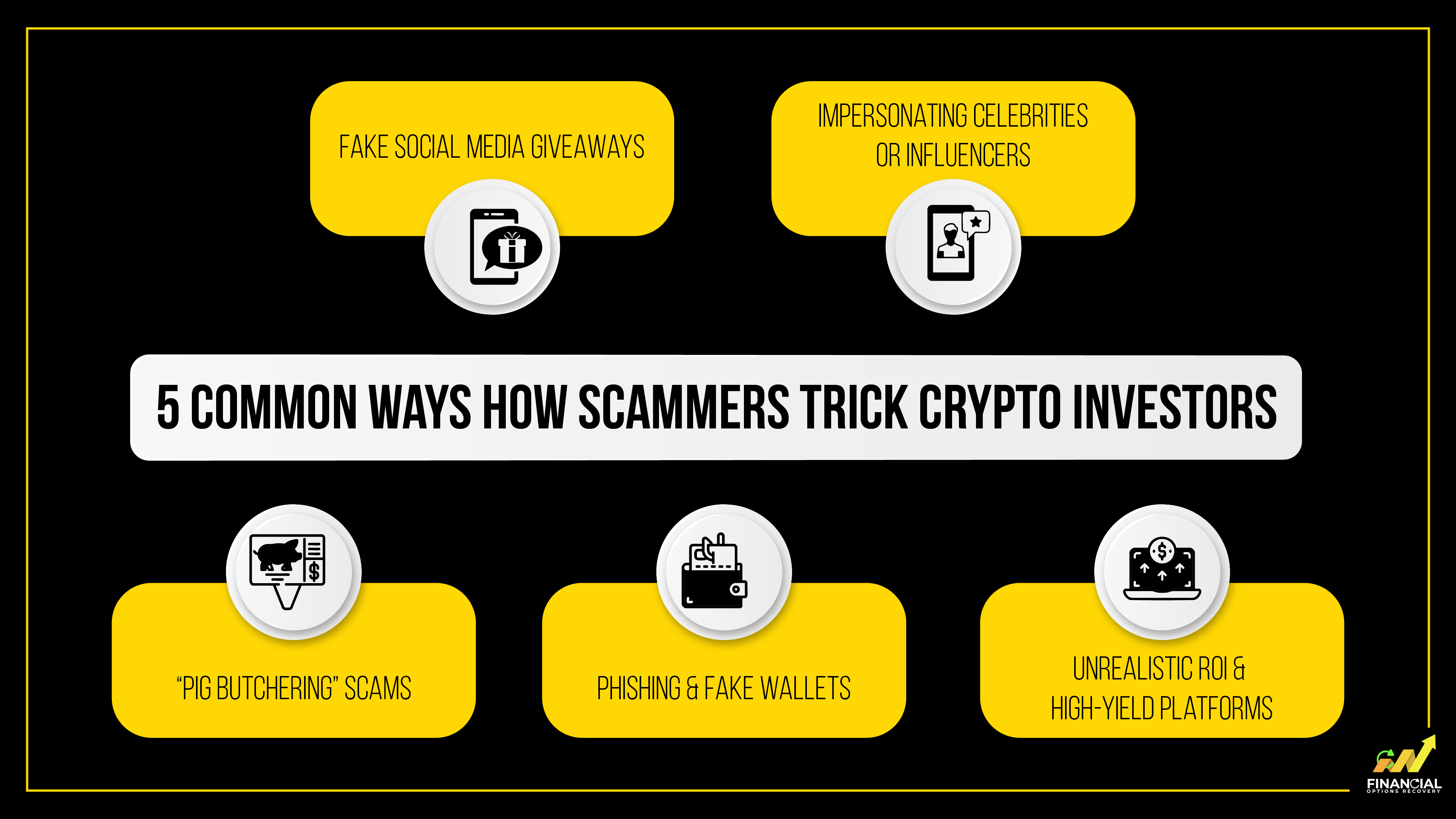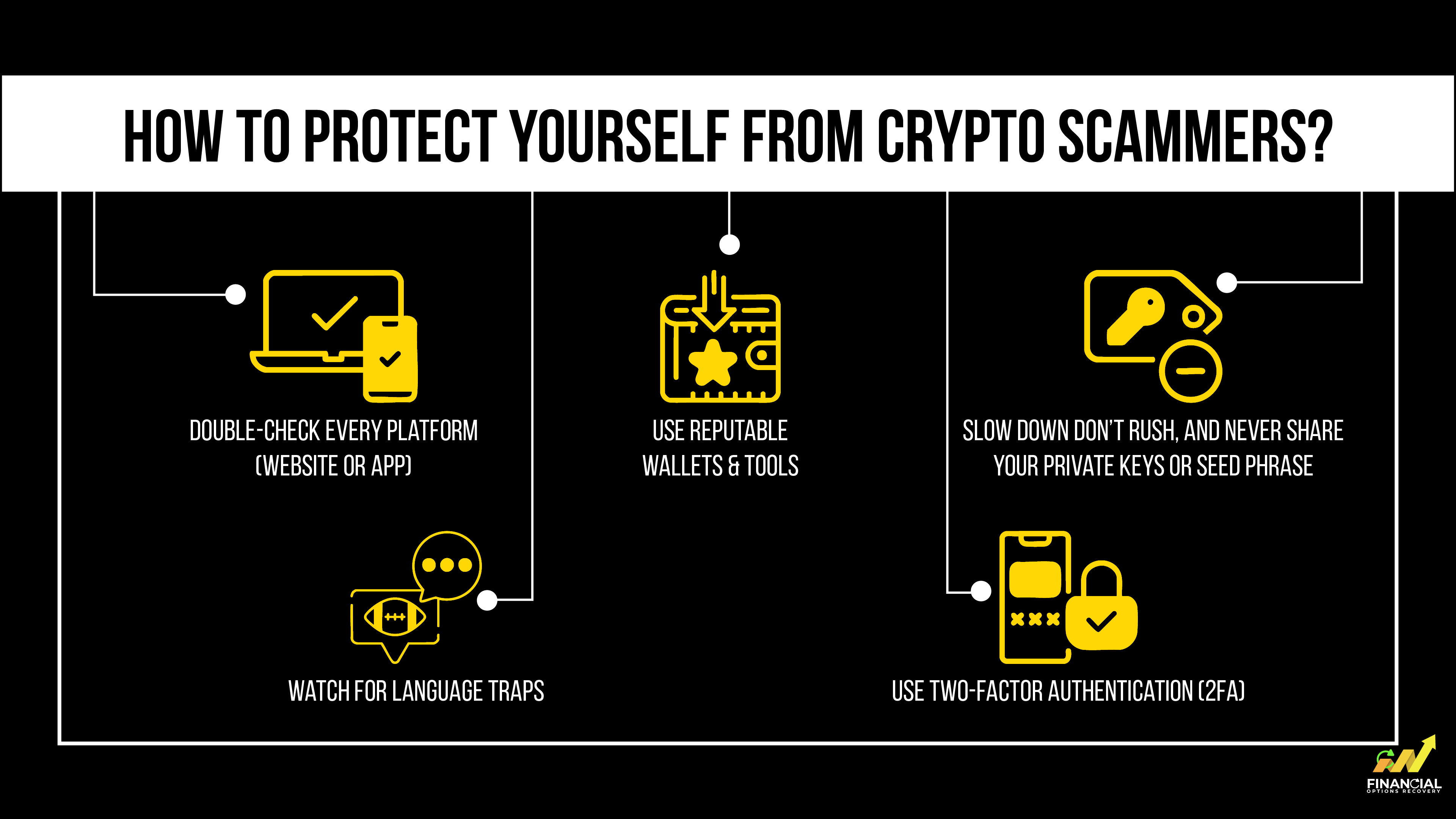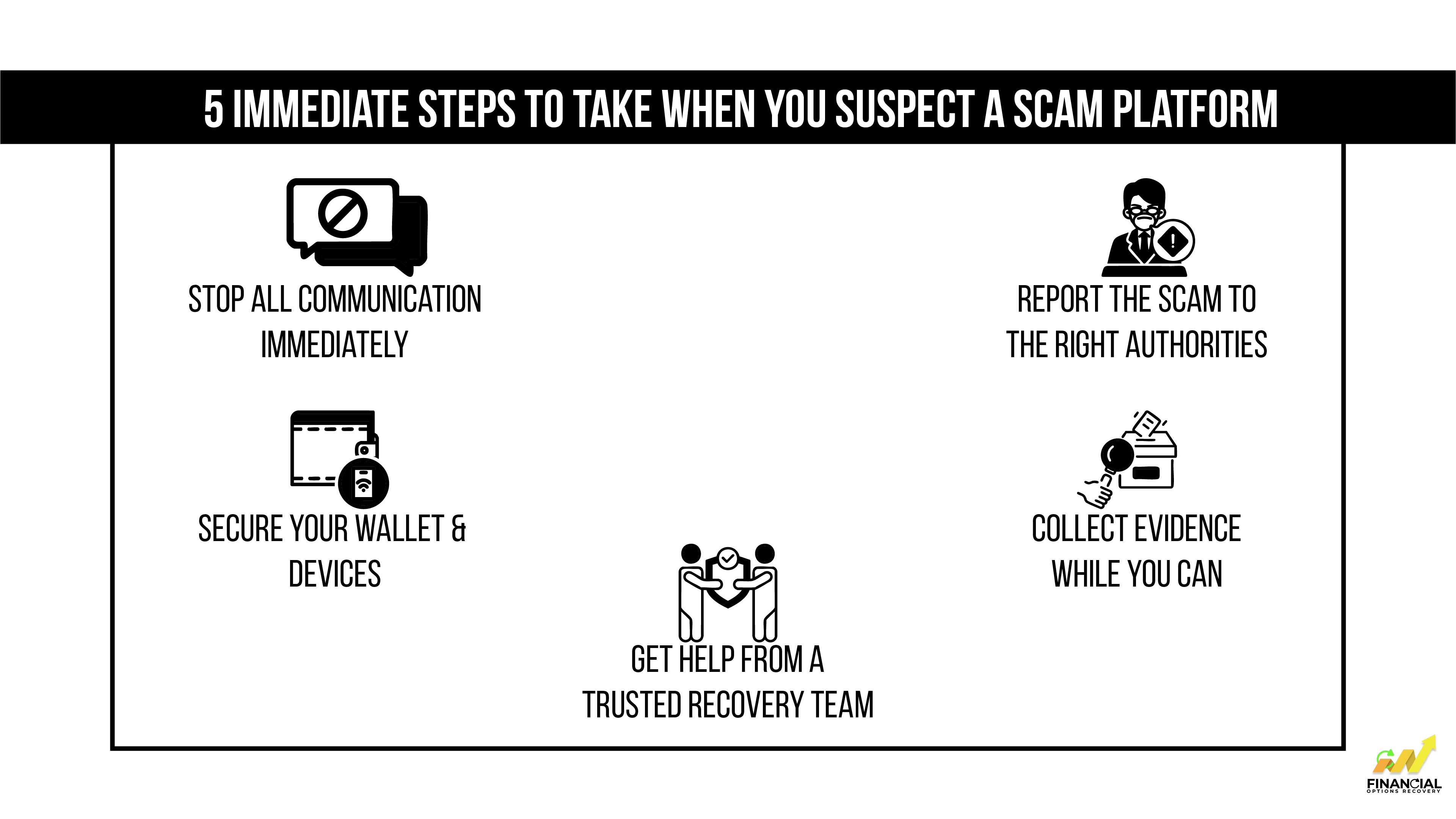
Have you ever received a random message about a “hot crypto tip” or an exclusive investment offer?
Maybe you’ve seen someone on Instagram claiming they made thousands overnight.
It’s tempting, right?
You’re not alone. The cryptocurrency world is full of opportunities, but also full of pitfalls. Behind many of those messages and offers are crypto scams cleverly designed to manipulate investors like you.
In 2024, scammers stole over $9.9 billion in crypto-related fraud, according to Chainalysis. That’s a 40% increase from the previous year. Even smart, experienced investors are falling for these scams every day.
So ask yourself:
These emotional hooks are no accident; they’re part of how cryptocurrency fraud works. Additionally, scammers utilize social engineering, fake platforms, and fake trust to present a narrative you will accept. Even more, once the money is gone, it will be very difficult to get it back. This is why investor awareness is so important.
In this blog, we’ll uncover how scammers emotionally manipulate crypto investors, the tactics they use, and how you can spot and avoid them, and eventually, how to recover your stolen funds.
Table of Contents
You might think, “I’d never fall for that.” But here’s the truth: Scammers don’t just steal money; they hack your emotions.
And they’re good at it.
They combine psychological manipulation, fake trust, and social tricks to get you to lower your guard. They are focused on targeting you; the right time is when your curiosity, hope, or vulnerability is showing.
Think about this:
That’s not luck. It’s a calculated plan.
This is referred to as social engineering, a way that scammers develop fake connections to gain trust further allowing them to construct a believable story to make you feel in control.
Then they add emotional pressure:
It triggers FOMO (Fear of Missing Out), urgency, and excitement, three emotions that make even experienced investors ignore red flags.
And here’s the twist:
The scammers often don’t ask for money right away. They wait. They build trust. They act like they’re on your side. By the time they introduce the “investment,” your guard is down.
Scammers exploit all of this with scripts, fake screenshots, and rehearsed emotions.
They don’t steal your crypto by force; they make you hand it over.
Scammers use well-practiced tactics that feel real, urgent, and rewarding. They may seem simple, but these tactics are carefully planned to fool you. And sadly, they work.
Below are some of the most common scam tactics used to fool crypto investors, from beginners to pros.

You’ll often see posts that say things like, “Send 0.1 ETH and receive 0.2 ETH back, a limited-time giveaway!” These are especially common on platforms like YouTube, Telegram, and X (formerly Twitter), often using fake videos or comments from big names in crypto.
What they’re really doing is stealing your funds with no intention of returning anything. One crypto giveaway recovery case shows how convincing the setup can be. For a breakdown of their tactics, see our crypto giveaway scam guide.
Scammers clone profiles of crypto personalities or celebrities, even using deepfake videos to promote fake coins or platforms. You might think Elon Musk is offering investment advice, but it’s likely a scammer behind a stolen photo and a verified-looking name.
Where it happens: Instagram, Facebook, WhatsApp, and even fake livestreams on YouTube.
The fraudster pretends to build a relationship—often romantic or friendly—over days or weeks before pitching a fake crypto investment. They’ll show fake profits and encourage you to invest more until they disappear with your money. These scams are very emotionally manipulative.
Red flag: Sudden investment pitches from someone you met online.
Learn more about pig butchering crypto scams here.
Clicking on a fake airdrop, mint site, or wallet login can cost you everything. These sites are built to look identical to real ones like MetaMask or Phantom. The moment you approve access, your wallet is drained using smart contract tricks or malicious code.
Tip: Always verify URLs and never connect your wallet to random pop-ups or DMs.
Scam platforms promise high returns, sometimes 50 %+, for “staking,” “cloud mining,” or using an “AI trading bot.” They’ll show fake dashboards, fake testimonials, and fake trades. It looks legit… until you try to withdraw.
Biggest warning sign: guaranteed profits. Real crypto investing carries risk, not promises.
Scammers use the following:
And social pressure to get you to act fast, and regret it later.
Scammers often follow the same playbook. If you know what to look for, you can avoid losing your money before it’s too late.
Here’s a quick guide to the most common red flags in crypto scams and what they mean:
|
Red Flag |
Description |
Why It’s a Scam |
|
Guaranteed Returns |
“Earn 10x in a week with zero risk!” |
No legitimate investment guarantees profits. Crypto is volatile and unpredictable. |
|
Urgency or Pressure to Act Fast |
“Offer expires in 1 hour!” |
Scammers rush you so you don’t research or think clearly. |
|
Unsolicited Messages |
Random contact on WhatsApp, Telegram, or social media |
Real investors or advisors don’t cold message strangers. |
|
Unlicensed or Unknown Platforms |
The website looks flashy but has no regulatory info |
Legit platforms are registered, verifiable, and have real teams behind them. |
|
Requests for Private Wallet Info |
Asking for your seed phrase, private key, or remote access |
No real service ever asks for this—it gives full access to your crypto. |
If you notice even one of these signs, stop and investigate before taking any action. Your awareness is your first and strongest layer of protection.
Staying safe with cryptocurrency starts with being aware. You don’t have to stay away from crypto; you just need to be careful and pay attention. Scammers are getting smarter, so the best way to protect yourself is to stay one step ahead.
First, always check the website or app you are using. Many scams involve taking the original platform and creating a fake platform that looks very, very similar. In many cases, even the popular platforms have fake apps and websites.

Always verify the website URL before logging in or connecting your wallet. Just one letter incorrectly spelled or omitted or an added symbol can send you to a scamming page instead of the legitimate one. To be safe, keep in mind to bookmark your official pages that you trust and frequently use.
Next, protect your wallet details. Never share your seed phrase or private key with anyone. No real exchange, support team, or recovery service will ever ask for this. If someone does, it’s a red flag. These details give full access to your funds. Once shared, your assets are no longer safe.
In addition, watch out for investment offers that seem too good to be true. Scammers often promise high returns with little risk. They may even show fake reviews or fake profit screenshots. Don’t fall for the hype. Always take time to research the person, project, or platform. A simple search can often reveal warning signs.
Using the right tools makes a big difference. Stick to wallets and exchanges that are popular and trusted. Before signing up, read reviews and see what other users are saying. Also, turn on two-factor authentication (2FA) for all your accounts. It adds another layer of safety; even if someone gets your password.
The vigilance for up-to-dateness also matters. Scammers probably are changing methods by the day. New scams emerge every week: wallet drainer attacks, fake airdrops, AI trading bots, and fake recovery firms preying on previously scammed victims, to name a few. Reading all the crypto news that comes through one's direction, entering only safe forums, or watching trusted sources might prove to be the most important aspect in identifying them at the onset.
Lastly, be cautious in online communities. Scammers often reach out on social media or messaging apps, pretending to help. They may sound friendly and convincing. But if they’re offering quick solutions, guaranteed returns, or asking for sensitive info be careful. Don’t rush. Take your time. Think before you trust.
Discovering you have been scammed can be distressing, but immediate action is essential. But don’t blame yourself; these scams are highly sophisticated. The important thing is to act quickly and smartly.

Here’s what you can do right now to protect yourself and start the recovery process:
Block the scammer on all platforms. Don’t respond to further messages, even if they promise help or try to “explain.”
Reminder: Scammers often come back pretending to be recovery agents. That’s another trap.
Reporting helps you and others. Here’s where to start:
You can also report to the exchange or platform used, some may freeze scam accounts.
If you gave out your private key or clicked a phishing link:
Act fast to limit the damage. The sooner you react, the more you may be able to save.
Take screenshots of messages, addresses, websites, and transaction IDs. This helps in recovery efforts and makes your report stronger. Store this info in a secure place or cloud drive.
If you’ve lost funds in a crypto scam, you don’t have to face it all by yourself.
There are legitimate crypto recovery services that can assist in tracing transactions, gathering evidence, and working toward recovery.
If you’ve read this far, it means you care either for yourself or someone you know. And that matters more than you think.
By learning how crypto scammers operate, what red flags to watch for, and how to respond if you’ve already been scammed, you’ve already done what most people don’t:
At Financial Options Recovery, we help people just like you take the next step, safely.
Scammers use sleek websites, fake reviews, and even rented office addresses to look real. Some even pay influencers to “endorse” them. It’s all smoke and mirrors, don’t trust the gloss, trust the facts.
These are buzzwords scammers throw around to sound advanced and legit. But no real investment can guarantee profits, especially not daily or fixed returns. If they say “guaranteed,” that’s your cue to walk away.
Often through phishing links, fake apps, or asking you to “verify” your identity. The moment you share your seed phrase or login details, it’s game over. Rule of thumb: Never share private info even with “support.”
Crypto transactions are mostly irreversible and hard to trace. If they ask for Bitcoin, USDT, or ETH only and refuse bank transfers or cards, it’s likely a scam. Real platforms offer safer, regulated payment options.
Red alert! This is a massive scam. No real customer support, no real crypto platform, no real human will ever ask for your seed phrase or private keys. Think of your seed phrase as the master password to your entire crypto fortune. If they have it, they own your crypto. If anyone asks for it, immediately assume it's a scammer and block them.